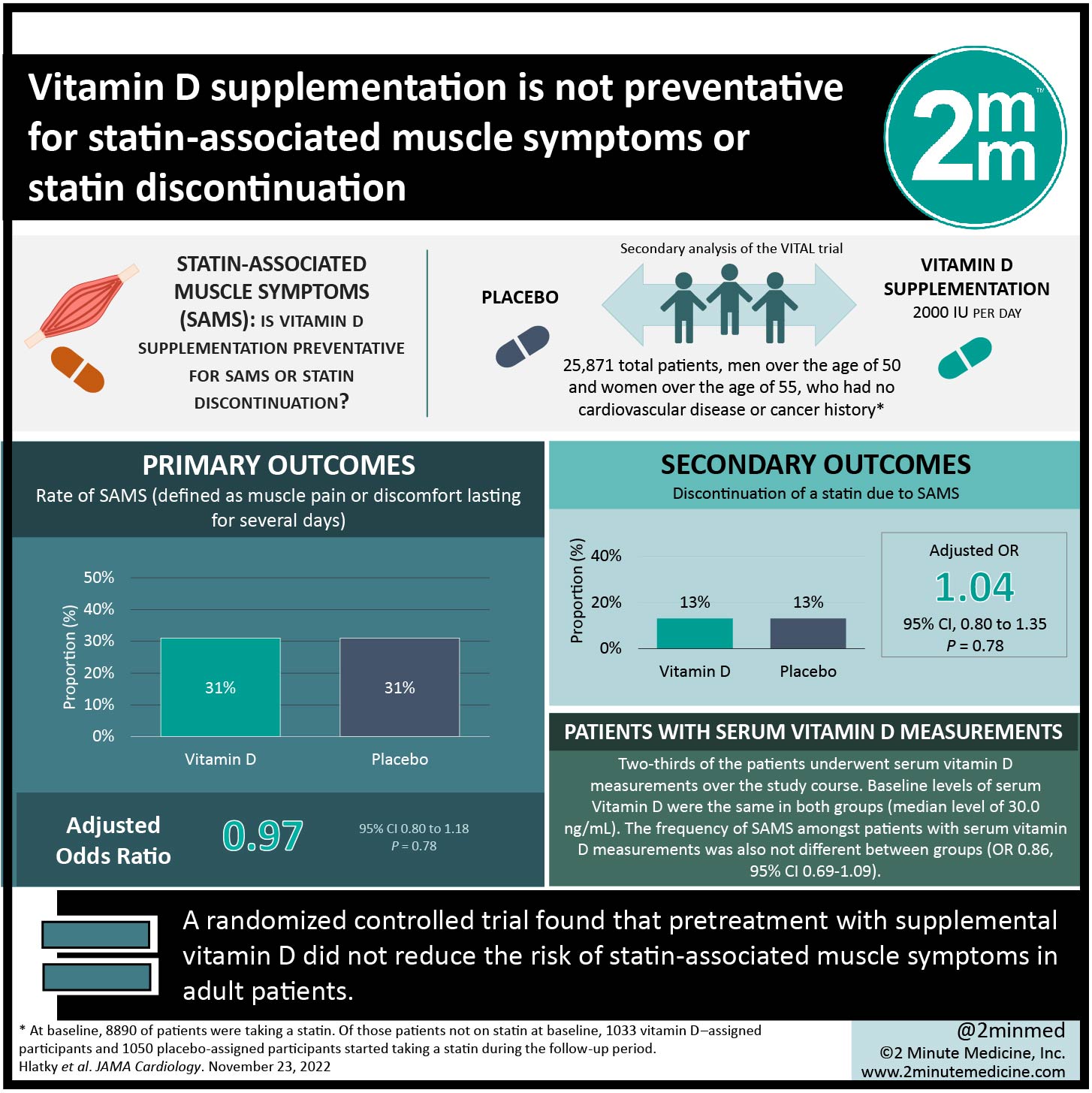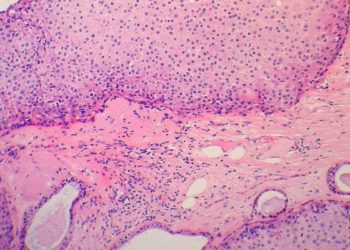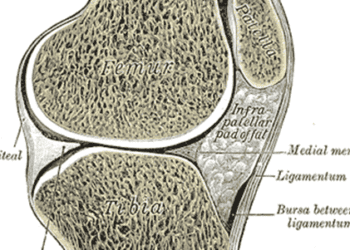#VisualAbstract: Vitamin D supplementation is not preventative for statin-associated muscle symptoms or statin discontinuation
1. A randomized controlled trial found that pretreatment with supplemental vitamin D did not reduce the risk of statin-associated muscle symptoms in adult patients.
2. Vitamin D supplementation also did not reduce the risk of statin discontinuation.
Level of Evidence Rating: 1 (Excellent)
Study Rundown: Statins are amongst the most common medications prescribed in North America for dyslipidemia and heart protection. Adverse effects include statin-associated muscle symptoms (SAMS), which can be bothersome and frequently lead to medication discontinuation. Recently, low-grade evidence has emerged for vitamin D supplementation as a potentially effective means of reducing the incidence of SAMS in patients using statins. This study represents a secondary analysis of alternate outcomes (rate of SAMS and statin discontinuation) from a randomized controlled trial seeking to assess the effect of vitamin D on cancer risk in statin users.
In total, 25,871 participants were randomized. At baseline, 8890 (34%) of patients were taking a statin; of those who were not on statin therapy at baseline, 2,835 reported taking a statin during the follow-up period. 31% of patients in both the vitamin D and placebo groups reported muscle symptoms while taking a statin medication. The rate of statin discontinuation was also the same in both groups at 13%. Baseline serum measurements of vitamin D levels were also not different between the two groups.
This secondary analysis of the VITAL trial demonstrated that vitamin D supplementation does not affect the risk of experiencing SAMS in adult patients taking statin medications. Strengths of this study included the randomized trial design, which does well to control for confounding and the large study size. Drawbacks of this study include the inability to assess statin compliance as well as chronology (i.e., the timing of SAMS compared to initiation of statin therapy). Future studies should work to elucidate other agents which may be helpful in preventing SAMS in statin users.
Click here to read this study in JAMA Cardiology
Relevant reading: Statin-associated muscle disease: advances in diagnosis and management
In-Depth [randomized controlled trial]: Data from this study was derived from the VITAL (vitamin D and omega-3) study, a large randomized controlled trial seeking to assess the impact of vitamin D supplementation on cancer risk in statin-users. Eligible patients were men over the age of 50 and women over the age of 55 who had no cardiovascular disease or cancer history. Participants were randomized to receive vitamin D supplements (2000 IU per day), omega-3 supplements or a placebo and completed a survey about the medications they were taking at baseline and over a series of follow-up questionnaires. Patient enrolment took place between November 2011 and March 2014; the mean follow-up time was 4.8 years.
Overall, 31% of patients in both the vitamin D and the placebo group reported SAMS. Therefore, the adjusted odds ratio for SAMS in the vitamin D group versus placebo was 0.97 (95% confidence interval 0.80-1.18). 13% of patients in both groups discontinued the statin medication; the adjusted odds ratio for discontinuation was 1.04 (0.80-1.35).
Amongst patients who underwent serum vitamin D measurements over the study course, baseline levels were the same in both groups, with a mean level of 30.4 ng/mL and a median level of 30.0 ng/mL. The frequency of SAMS amongst patients with serum vitamin D measurements was also not different between groups: 28% of the vitamin D supplementation patients vs 31% of the placebo patients experienced SAMS. The odds ratio for SAMS in vitamin D users versus placebo participants who had serum vitamin D measurements was 0.86 (95% CI, 0.69-1.09).
©2022 2 Minute Medicine, Inc. All rights reserved. No works may be reproduced without expressed written consent from 2 Minute Medicine, Inc. Inquire about licensing here. No article should be construed as medical advice and is not intended as such by the authors or by 2 Minute Medicine, Inc.








